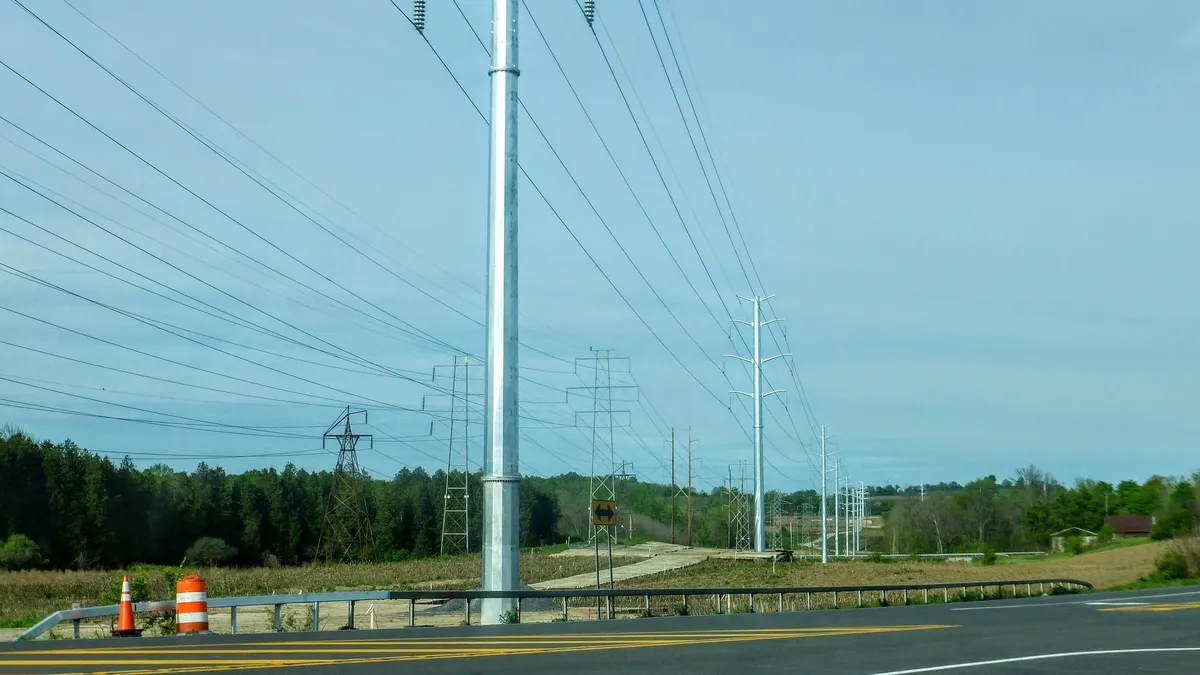Dive Brief:
- A New York state climate panel on Monday approved sweeping policy recommendations that aim to reduce greenhouse gas emissions 40% by 2030 and 85% by 2050 relative to 1990 levels.
- In its Scoping Plan, the Climate Action Council outlined a path to 70% renewable electricity by 2030 and 100% zero-emission electricity by 2040. The plan will be submitted to the Legislature and Gov. Kathy Hochul by Jan. 1.
- Net direct costs associated with the plan are estimated to be up to 0.6% of the state’s economy in 2030 and 1.3% in 2050. The U.S. Department of Commerce pegged the size of New York’s economy at $2 trillion in the second quarter.
Dive Insight:
About 1 million to 2 million homes in New York must be electrified with heat pumps by 2030, and some 3 million zero-emission vehicles, predominantly battery electric, will be needed by 2030, the council said.
Advanced state building codes are a key strategy for requiring residential and commercial buildings to be built to a zero-emission and highly efficient standard -- without equipment that burns fossil fuels -- beginning in 2025 for low-rise residential new construction and in 2028 for new commercial construction, the panel said.
More than 250,000 housing units each year will need to adopt electric heat pumps and energy efficiency measures from 2030 on, the council said. That’s greater than a tenfold increase from “current market activity,” it said. A “comparable pace of transformation” will be needed in commercial buildings, it said.
New and upgraded transmission and distribution systems will be needed statewide, specifically to deliver energy from generation in upstate New York and offshore wind to where the demand is located, the Scoping Plan said. It called for land-based wind and solar, offshore wind, hydropower, fuel cells that use renewable fuels and energy storage.
Council members voted 19-3 to approve the plan. Twelve of the 22 members are state agency or authority heads who serve directly or indirectly at Hochul’s pleasure.
Basil Seggos, state environmental commissioner and co-chair of the council, called the plan a “bold, monumental achievement.”
Angela Kent, policy principal at Advanced Energy Economy, a business association, urged Hochul and lawmakers to “act swiftly to implement the plan’s recommendations” that she said would make it easier for clean energy projects to connect to the grid and establish financial incentives for communities to switch to clean energy.
Gavin Donohue, president and CEO of Independent Power Producers of New York, said the plan fails to “lay out the most cost-effective and technologically feasible path” to meeting climate goals.
“Reliability is paramount and is not adequately addressed,” he said. “The state has missed opportunities to address zero emissions technologies needed to keep the lights on.”
State Senate Minority Leader Rob Ortt, R, said the Scoping Plan negatively affects his constituents in western New York “and millions of other New Yorkers, by making life more expensive and putting their livelihoods in jeopardy.”













